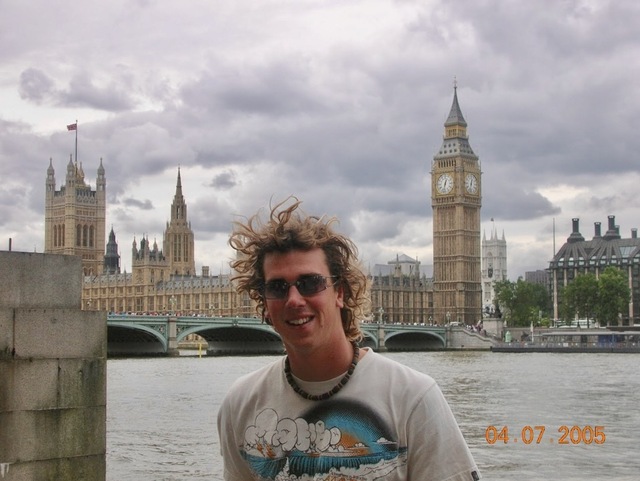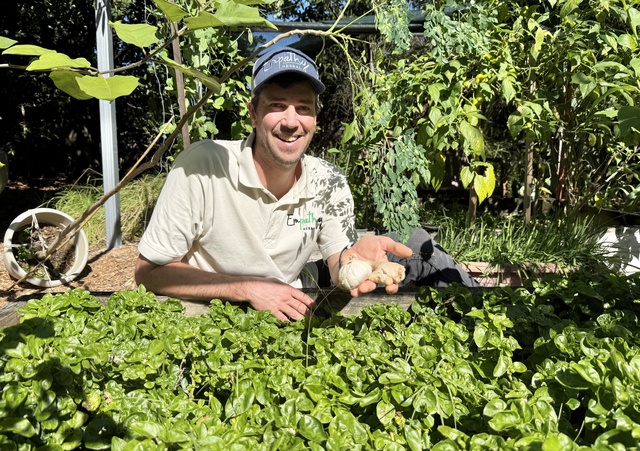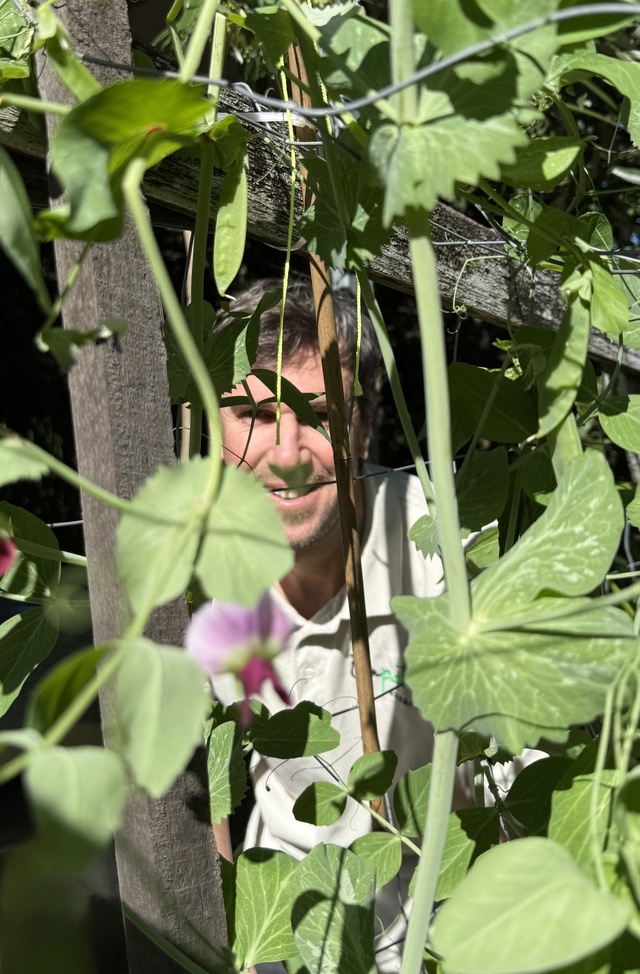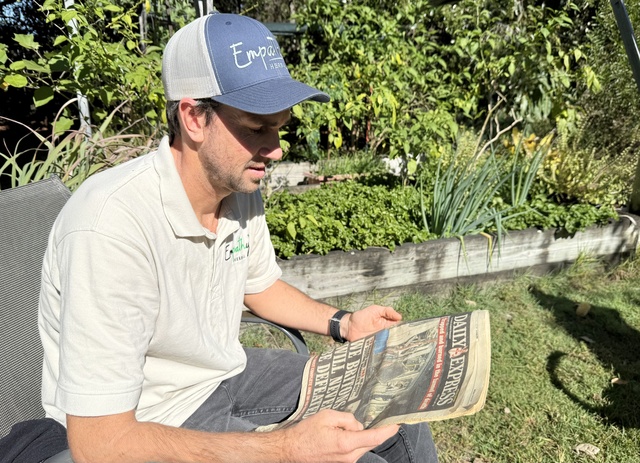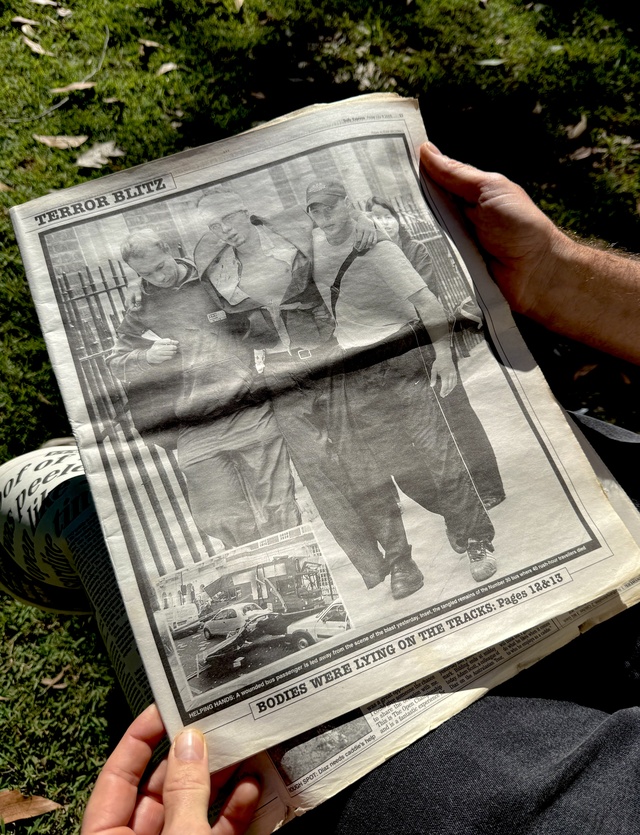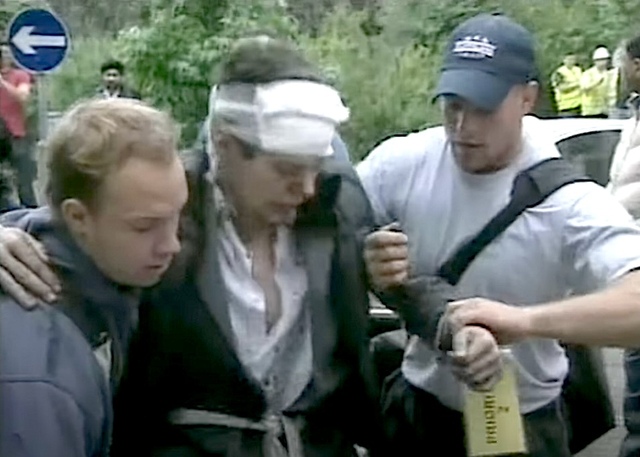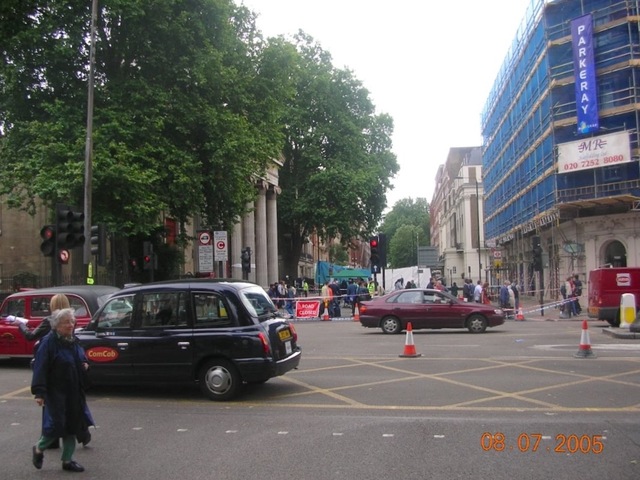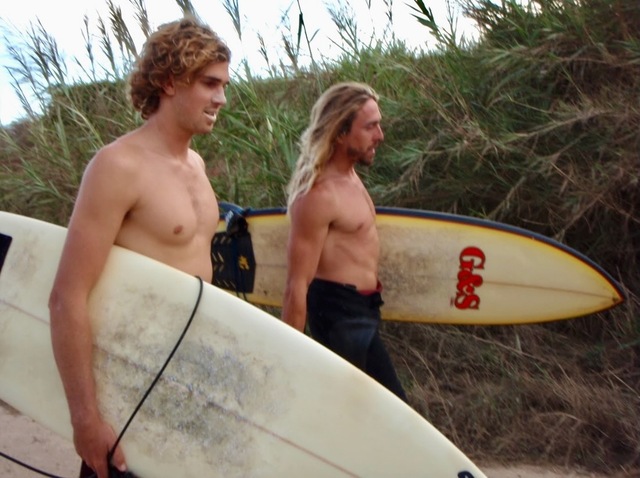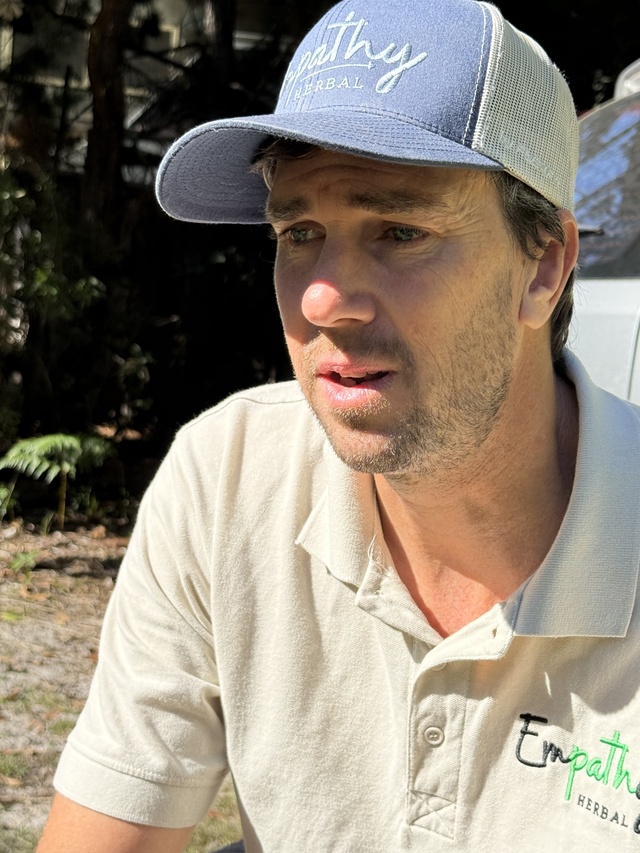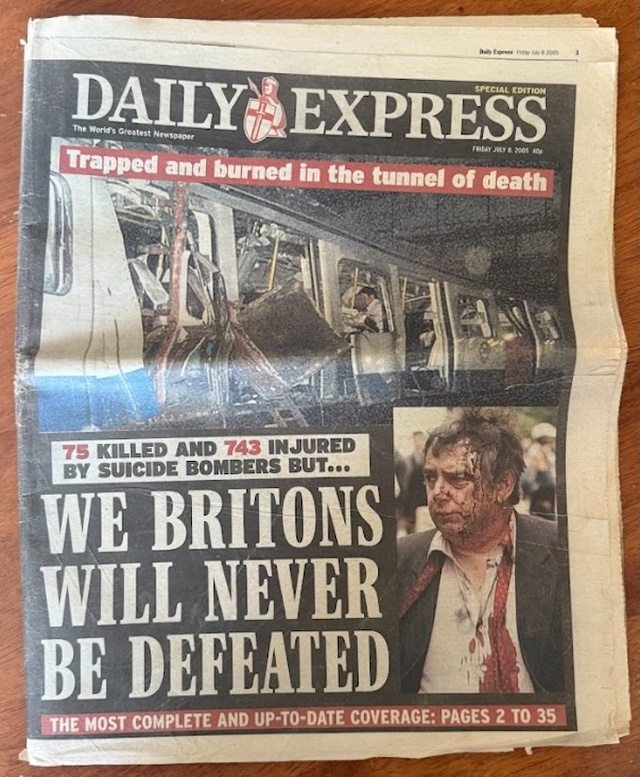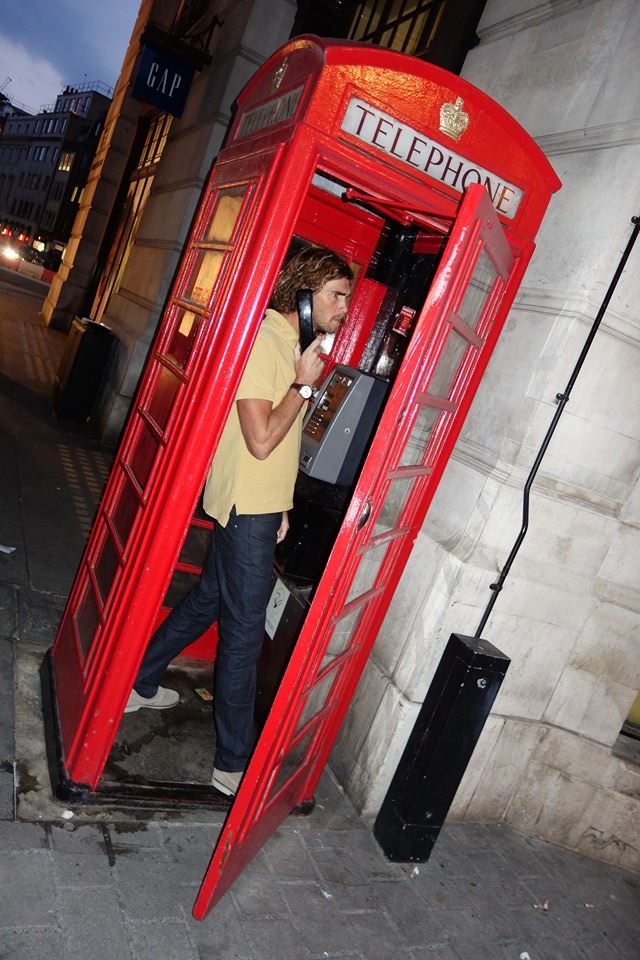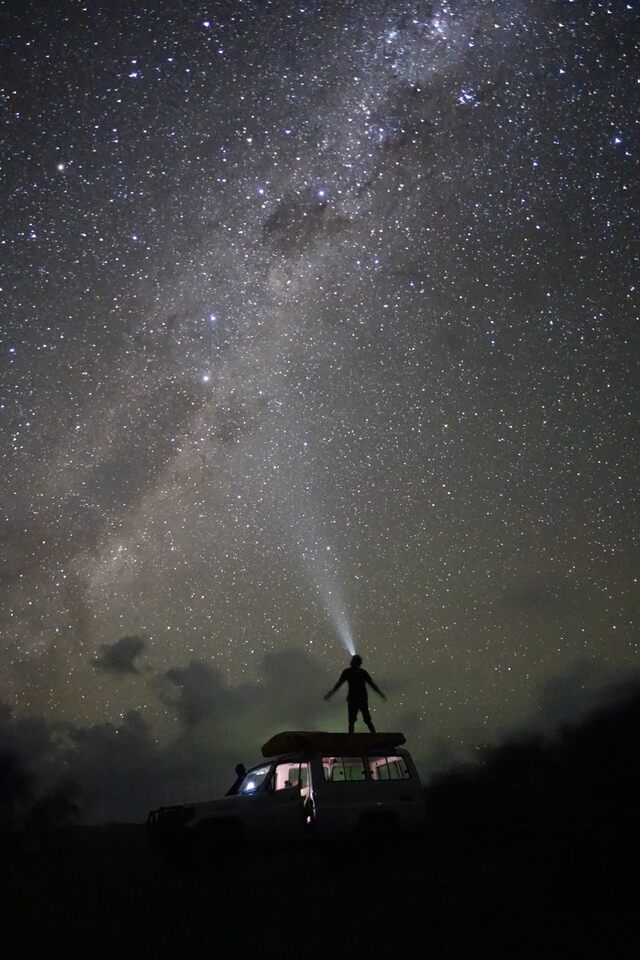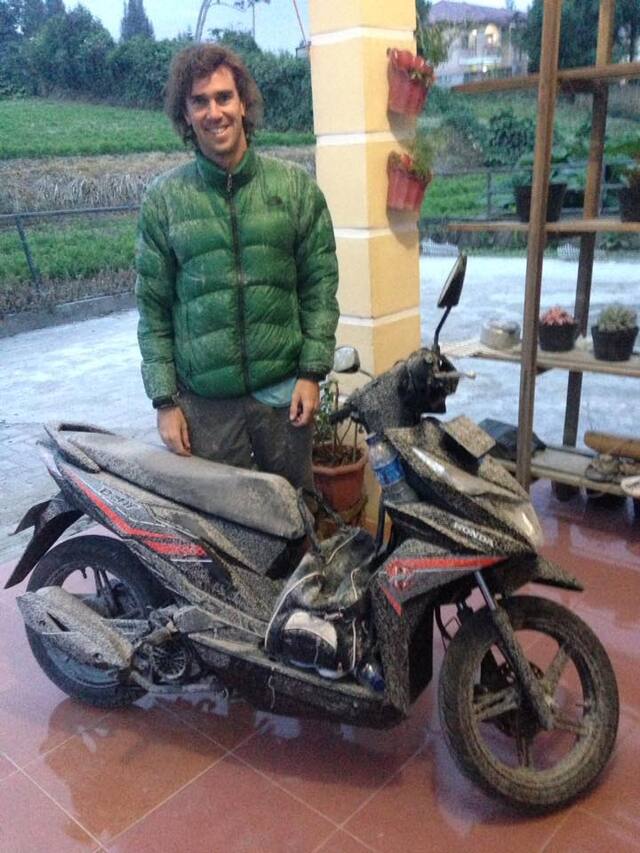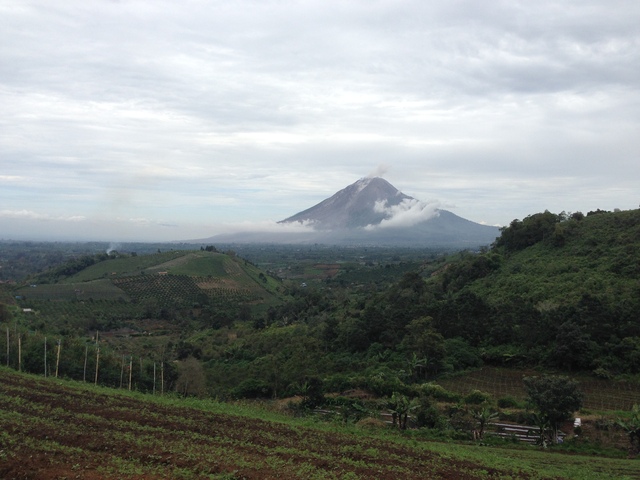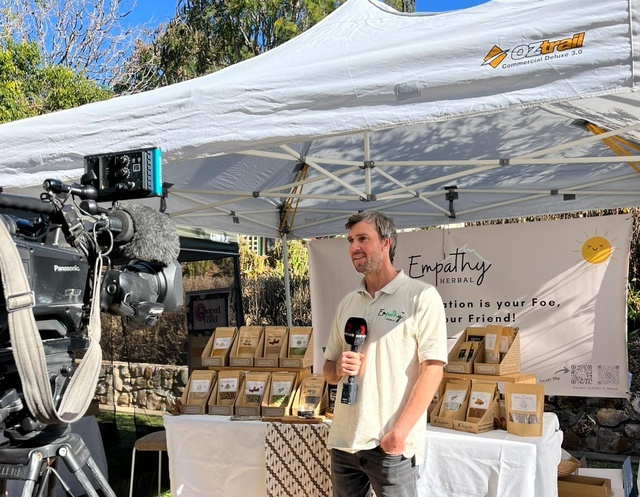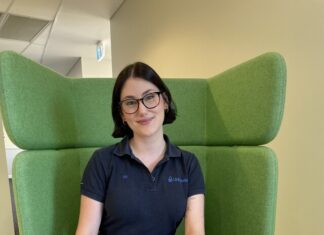PRECEDE
An Australian surfer who found himself an accidental first responder at London’s 7/7 bombings has found a life of healing and purpose at Rainbow Beach. ERLE LEVEY caught up with Jim Hancock at Empathy Herbal as he prepares to attend the 20-year commemoration of July 7, 2005.
BREAKOUT QUOTE
“That compassionate feeling takes over and you just want to help people.’’
He was the accidental first responder to the deadliest bombings in London since the air raids of World War II.
Rainbow Beach surfer and tour guide Jim Hancock thought nothing of being one of the first to go down to the scene of the bombing at Russell Square underground station on 7 July, 2005.
It was one of four suicide bombings as part of London 7/7 that took 52 lives and left more than 770 injured.
It was something you just did, Jim told me at his home last week – a sunny winters day that was so different to the scene that met him at the London Underground station 20 years ago.
Not since the Lockerbie air disaster over Scotland in 1988 had so many people been killed on British soil.
In that tragic event all 259 passengers and crew on board Pan Am Flight 103 were killed, along with 11 people in the town of Lockerbie, when the plane fell on their homes after a bomb exploded in the Boeing 747’s cargo hold as it flew from Heathrow to New York.
For Jim, the decision to help at Russell Square station was a real sliding doors moment, one that changed his life and stays with him to this day. In the wake of that and his personal recovery, it led to a sense of healing and purpose.
Why wouldn’t it … to see the horror of the bombing. People terribly injured or maimed – many with limbs torn off and either making their way or being helped out of the heat, the dust, the smoke and the eerie silence of the underground tunnel.
Gone was the noise and urgency of early-morning commuting. After the explosion came the screeching of metal on metal as the train came to a halt in the tunnel.
Then came the agonising screams of those impacted.
Some were being carried in blankets. Tables in the station were being used as a triage station until they could be moved to street level and the ambulances.
Having gained first aid certificates from being a surfing instructor, Jim was allowed down into the station.
At that stage it was only police and railway staff at the scene in what was first thought to be a crash or derailment.
Suicide bombings didn’t happen in London … or so it was thought.
During rush hour, four Islamist terrorists detonated explosives on three London Underground trains and a double-decker bus.
For Jim, he had been on his way to the Russell Square station to get to a job interview – in the French Alps for the ski season.
He had only been in London a few days after stopping in Indonesia on his way from Australia to start his European adventure.
The stories of backpackers and travellers he had met as a tour guide, first on Kangaroo Island in his home state of South Australia, and later on K’Gari as part of his move to Queensland, had lured him to experience his own adventures.
It was in his backyard garden at Rainbow Beach that Jim told me about the traumatic experience of the bombing.
Yet it was a significant setting, as growing herbs and undertaking remedial therapy have been important in his recovery – from the mental scars of the event, but also the damaged kneecap from an earlier snowboarding accident in Australia.
Under the brand of Empathy Herbal, Jim now grows and prepares herbs and vegetables – such as black garlic – to help others overcome the stress, strains and illnesses caused by trauma and inflammation.
Herbs and spices such as ginger, galangal and turmeric.
Much is grown in village gardens on rich volcanic land he has on the Indonesian island of Sumatra. Others, such as black garlic, are grown in Australia – particularly the northern rivers region of New South Wales.
The herbs and spices are prepared in Rainbow Beach, at the commercial kitchen at the community centre.
Jim created Empathy Herbal five years ago, a business dedicated to helping others improve their health through anti-inflammatory living, drawing on the skills he had developed in meditation, breathwork, exercise, and nutrition during his own recovery.
Empathy and compassion … they are the attributes that guide him in his aim to help people improve their health and quality of life through diet, exercise and mindfulness practices.
Jim’s immediate reaction to the bombing was not remarkable in itself – it was something that was ingrained in his spirit from his love of surfing and experience as a tour guide.
“You would just go straight into this response. I mean you are overwhelmed with what you see – you react under some sort of autopilot.
“That compassionate feeling takes over and you just want to help people.’’
Born in Adelaide, Jim grew up and surfed at the beaches to the south of the city.
He attended TAFE after high school and learnt outdoor recreation skills such as kayaking and bushwalking.
The first aid was was part of the course, together with a bronze medallion in life guard qualifications for his surfing instruction.
As a tour guide he was giving other people awesome experiences so he wanted to enjoy that too.
“Once I got over to Europe I thought my stay would be for a year but then all of this happened.’’
Arriving in London was a little bit different to Melbourne or Adelaide but was quite comfortable after a few weeks in Indonesia – and his initial difficulty with the language there.
“I remember the sun setting at 11 o’clock at night in London and it was really nice weather. I enjoyed walking around the city and was there for about a week when everything happened.
“London had just won the 2012 Olympics bid the day before the bombing, so everyone was like cheering and super happy.
“At Trafalgar Square, everybody was there and cheering, singing. Then the next day the bombing happened – it was quite surreal, the transformation.’’
Great Britain was hosting the G8 summit of economic leaders in Scotland at the time and Prime Minister Tony Blair was concerned there could be more bombings – a concern that proved correct as two weeks later four more bombs were set but did not detonate.
On July 7 Jim planned to catch the tube to get to his job interview. He had written down the address on a piece of paper as internet and mobile phones were new in 2005.
“I got to the tube station and the gates were shut. There were injured people coming out from inside, but no-one knew what had happened or what was going on.
“It was a mess. The people that came up first were in the end carriages so they were basically fine.
“They were dirty and dusty … there were some with scratches and cuts.’’
As one of the first there with first aid training, Jim asked if he could help. Then more police arrived, and nurses ran down from a nearby hospital.
“Everyone was in shock but with first aid training it was just something you do.
“When people started coming out with missing limbs, that’s when it got a lot more real. I was definitely taken aback about what was going on but you know you don’t have time to stop and get shocked.’’
Part of Jim’s outdoor recreational training in Australia had included a bush walk in Victoria’s Alps.
There was a group of five but one walker slid down a slope and broke both femurs, tibias and fibulas in the legs.
“We were in the snow overnight and he was lucky. Another girl slid down and she busted her knee, so I had that emergency experience – I had already dealt with something severe and life-threatening at that point.
“Deep down you have that preparedness but other people were just on their daily commute and a lot of them would have no idea how to respond.
“After an hour or so, paramedics arrived and took control as so much else was going on. But that first hour, helping the critically injured with only basic first aid supplies will never leave me.”
Jim was assisting in the station for two to three hours – the first 45 minutes were the most critical because that’s when there were no ambulances or paramedics, no doctors because of everything else that was happening in London all at once.
Being down at the platform was definitely an eerie feeling, he said. One woman was white as a ghost.
“There was a police officer helping a passenger who had lost part of his leg. The man was lying down but the police officer had removed his own belt and was holding the leg up to stop the bleeding.
“He was still alive – he was conscious and talking.’’
At this point Jim showed me a London tabloid newspaper from the next day of the bombing.
Looking at a full-page photo of two men helping an injured man walk, Jim told me to look closely at the photo.
“I helped that guy … which is why I was so disturbed by it.
“What do you see is wrong with it?
“He had both feet when I helped him.’’
In the photo one foot was missing, apparently manipulated by the newspaper to add impact.
Since that day, the biggest healing thing was directly afterwards, Jim said.
“Everyone was told they could go and I thought, hang on, how can I go? There are still things to be done.
“There’s rubbish around – blankets, bottles, surgical stuff – so I was picking it up with some other people. I didn’t have closure to what had just happened.
“Once I had to leave the scene, there were a couple of nurses and some sort of recovery centre I guess. I don’t know – a cafe perhaps.
“Either way, it was private and we could just debrief about it, which was amazing. That was really good. Helpful.
“Just to talk about it with other people that were there.
“Otherwise people that had witnessed everything but weren’t quite heavily involved, they just walked away from it. They didn’t have the support that we got among ourselves.
“You don’t know when the shock or realisation will set in.
“That was the rawest time.’’
Back then, mental health wasn’t acknowledged the way it is now and there was certainly no awareness of the impact traumatic events such as this could have on first responders and those seeking to help.
Afterwards, Jim walked around, sent emails to family and friends to let them know he was safe, and the hostel he was staying at gave him a private room.
Yet he started to feel claustrophobic and was lucky enough to be able to go to the country for a few days. That was in Hertfordshire, where there were horses and he even got to play croquet.
From there he travelled down to Newquay on the coast of Cornwall, perhaps the UK’s best-known surfing place.
There, teaching surfing over summer, was a good way to further get over the trauma.
And the job interview, did that eventually happen?
“Yes, and I got it. I told them why I couldn’t get there that day … and that’s how I spent the winter, in the French Alps.’’
Before that, he met up with another Aussie and a Kiwi and they had three months of surfing in the south of France, Spain and Portugal.
The reason he left Europe and returned home was because his visa had run out.
Little did Jim know at the time but his life and career was about to change.
He decided to go back to Europe 10 years after the London bombings. This included going to the memorial and paying his respects.
Then he was encouraged to move to Indonesia and help with a herbal business.
“I didn’t know much about the business but realised it was a beautiful place and had epic surf.
“The hardest thing was trying to set up and run a business in a foreign country. However, I met a tourist guide who became a business partner – that’s how I started to farm organically and traditionally.
“I learned all about Indonesia and herbal remedies, then found that most pharmaceutical drugs are derived, in part, from plants.’’
That was near Mt Sibuatan, an active volcano about three hours out of the North Sumatra capital city of Medan.
Jim would go for motorbike rides at night and watch the volcanoes, then wake up in the morning and find volcanic ash over everything.
Eventually he ran out of money, but had a desire not to waste three years in Indonesia so he returned home to work and pay off debt.
Covid was a crazy time and Jim’s relationship with his herbal supplier in Indonesia broke up, resulting in him losing all of the machinery and his contacts.
“Everything stopped. I lost everything.
“It’s very hard to have a comeback when you’re dealing with another country. I had to start again.’’
It had been a traumatic experience but once the borders were open again Jim reconnected with some friends in Aceh, the westernmost province of Indonesia which was impacted severely by the 2004 tsunami.
A family helped him with connections to grow the produce he needed.
By now Jim had learnt the value of herbs through talking with Indonesian people and further study in Australia.
“The soil was amazing. There was really fresh fruit, vegetables, herbs and spices.
“I saw the way they would buy produce from the market.’’
Watching the women working in the fields, he realised their health and well-being had much to do with using herbs and plants – plants such as turmeric, ginger and curcumin for anti-inflammatory or antioxidant properties.
He could see how practical these products were and the difference they could make. It was the same with how they would drink jamu – a traditional Indonesian herbal tonic typically made with turmeric, ginger, and other spices.
“My knee was bad with arthritis but these women in the fields had great knee strength.
“They would carry a basket of produce on their head to the van and then load it.’’
Reflecting on his perseverance or willingness to grasp opportunity, another sliding doors moment occurred while walking along a street and, being recognised as a westerner, Jim was asked if he wanted to buy some sticky, ugly-looking garlic.
He had never seen black garlic before. He had never heard of it. It smelt horrible – but was delicious to taste.
Quickly learning about its qualities, he brought some back to Australia, together with different gingers and garlic powder.
Jim was initially making black garlic, but now he is going to work with a farmer in New South Wales who grows it.
He is also collaborating with University of Queensland as they have been studying the health benefits of black garlic.
Through it all Jim has been on a journey from adventurer, to farmer, to founder. But he needed to do a business plan.
He started to get feedback from happy customers that their health had improved. That gave him the confidence needed to go out and start promoting himself.
At first he was going to concentrate on tea, as it is effective in promoting relaxation and reducing anxiety.
However, the market was fairly well saturated so he chose Empathy Herbal – and black garlic is now one of his biggest products.
He is trying to focus on anti-inflammatories because it’s something that resonates with him. In doing so, Jim found a niche with anti-inflammatory foods – then incorporating an anti-inflammatory lifestyle.
“It has been a life-changing result.
“It feels like a dream come true, being able to help people to improve their health and well-being every day.
“In my journey I’ve overcome chronic arthritis in my knee from snowboarding.
“Along the way I’ve learned that everything happens for a reason. The universe helped me move to Rainbow Beach and set up at the market opposite the hostel I used to work for.’’
He said it felt great to share the importance of empathy and compassion in all walks of life.
The fall-out of the London bombing and the rehabilitation he has been through, physically as well as emotionally, has been on-going.
“I think everything happens for a reason … 100 percent. For me to be sitting talking with you now … I wouldn’t change a thing.
“In life, your most traumatic experience can be the best experience.’’
For Jim, Empathy is not just the name of his business, it’s the reason why people acted that day in London 20 years ago.
“It’s why I provide these foods that will help people who want to help themselves.
“You can help the people who are conscious about their health and want to live healthier. That comes from lifestyle, supported by diet.
“You know, empathy will save you, apathy will kill you.’’
Such a journey … and one which highlights that when people find themselves in situations such as in those London Underground carriages, they realise there are things that money just can’t buy.
When faced with losing your life, the most valuable things become crystal clear.
For Jim, this was the power of empathy.

